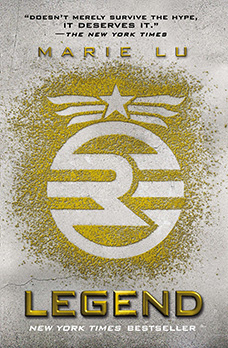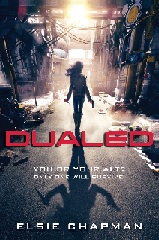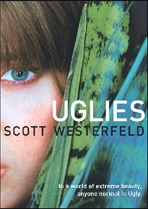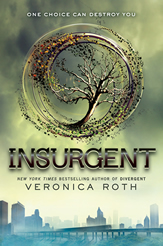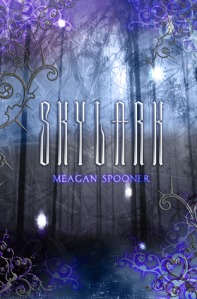
Title: The Handmaid’s Tale
Author: Margaret Atwood
Genre: Dystopian
Trigger Warnings: Heterosexual sex, rape, misogyny
Back Cover:
Offred is a Handmaid in the Republic of Gilead. She may leave the home of the Commander and his wife once a day to walk to food markets whose signs are now pictures instead of words because women are no longer allowed to read. She must lie on her back once a month and pray that the Commander makes her pregnant, because in an age of declining births, Offred and the other Handmaids are valued only if their ovaries are viable. Offred can remember the years before, when she lived and made love with her husband, Luke; when she played with and protected her daughter; when she had a job, money of her own, and access to knowledge. But all of that is gone now …
Review:
I’m still not sure what to make of this book.
I picked it up because my fiance and I got Hulu and I wanted to read the book before I watched the show. It took me a while to work through, for no particular reason.
And it was … odd.
There really wasn’t a plot to speak of. Like, seriously. At first I thought it was just slow to start, but nope – I got all the way through it and there still wasn’t really a plot. But it’s okay, because it’s really the world that grabs you. It’s one of those things where you get off the bat it’s an oppressive regime, but it’s slowly revealed how horrifying it is, what life was like before, and how it suddenly changed (although it didn’t make completely clear why it changed).
And the world is horrifying. People of other religions (or varieties of Christianity that are’t the regime’s particular brand), doctors who performed abortions, gay people, and anyone else who doesn’t conform and obey are executed and hung on a wall for everyone to see. There are only a few options for women – if they aren’t wives of regime-approved men, they could be Handmaids if they were fertile, Marthas (who do all the housework) if they weren’t, or Aunts (who indoctrinated the handmaids-in-training) if they were … I’m not sure what the qualifications for Aunt are. Women aren’t allowed to read or do much of anything – wives are allowed feminine pursuits like gardening and knitting, but not much else, and Handmaids aren’t allowed anything.
The details – and even the main ways society functions – fall into place slowly, bit by bit over the course of the book and even by the end I still felt like there were some things that I wasn’t aware of yet. It was beautifully built, engrossing, and enough for me to keep interested despite the lack of plot.
I grew up in a Christian fundamentalist world. This all made sense to me. I honestly didn’t realize how completely horrifying this would sound to other people until I started explaining it to my fiance, who was appalled that this would make sense to anyone, and extremely disturbed that there were fundamentalists who actually praised this as an ideal society. If you’re not used to religious fundamentalism (such as the Quiverfull variety), it’s going to be a horrifying introduction. If you are, it’s going to be eerily familiar and still horrifying.
Okay, we’ve gotten this far and I’m still not sure what I’m trying to say about this book. (Samantha Field, one of my favorite bloggers, wrote a great post on it that’s more eloquent than this one and I highly recommend it.) This is the kind of book you really have to read for yourself, because there’s no way you can get a sense of it just from a review.
UPDATE: The Hulu Show
I only watched a few episodes of it, because I wasn’t a huge fan. The show tried to include a lot more plot than the book, making Offred mostly interested in finding her daughter (not a huge thing in the book) and bringing in the underground resistance movement in the first episode (which wasn’t until later in the book, and Offred wasn’t all that involved). It also put events in a different order, which bothered me. It wasn’t a bad show and I understand why they made a lot of the choices they did (after all, it’s hard to make a show when there’s not much of a plot), but I think I’d have liked it better if I’d watched it before I read the book.
And as an aside, there were a surprising number of non-white Handmaids. Normally I’m all for diversity in media, but in this case it surprised me because racism is a major thing, especially in American Christian fundamentalism. Having grown up with a very similar breed of fundamentalism, it seemed unrealistic to me that the women of color weren’t all Marthas or exiles to the Colonies, viable ovaries or not.
UPDATE: The Movie
I watched the 1990 The Handmaid’s Tale movie, and it was actually really good. It stuck fairly close to the events of the book, and cutting out the internal monologue and the pre-Gilead flashbacks actually gave it a lot more structure and semblance of a plot. The ending veered far away from the book, but made for a somewhat satisfying, hopeful ending that made it feel more like a complete story. If you’re looking for a good visual adaptation of The Handmaid’s Tale, give the 1990 movie a try.


